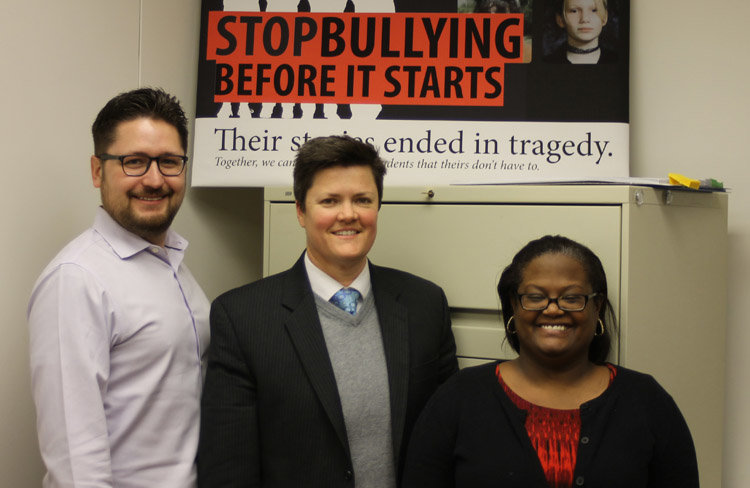
Nathan Triplett, the former mayor of East Lansing, has taken on a new role: political director of the statewide gay rights organization Equality Michigan.
The advocacy group is fed up with the lack of political will to change the Elliott- Larsen Civil Rights Act to provide gay people with protection against discrimination.
To do this, Equality Michigan has launched an initiative to find a legislative path to extending these protections to the Michigan LGBT community.
“What you see is a conversation about strategy,” Equality Michigan Executive Director Stephanie White said. “We are unified as a community that civil rights have to happen.”
To lead that legislative initiative, White hired Triplett. Triplett is straight but comes to the gay rights group with a long history of LGBT equality activism.
Triplett helped organize the group’s Local Electeds Against Discrimination, which coordinated a largely successful effort in 2013 and 2014 to amend local ordinances to protect LGBT residents against discrimination throughout mid-Michigan.
Triplett lost his City Council seat in November. He served as mayor as a Council appointee in East Lansing, which has a city manager.
Triplett said he will build on that experience as Equality Michigan focuses on electoral politics for the next few years. He said the agency’s goal is to elect more LGBT friendly and supportive candidates to state offices. That includes the race for the state House this fall, local elections in 2017 and the gubernatorial and senate races in 2018.
“These are critical elections that will shape the political landscape over the next decade,” Triplett said.
Triplett said the agency will also work with various networks across the state that already committed to doing work to address LGBT equality issues through engaging community centers and people of color, labor and faith in a variety of grassroots activities.
Another group, Fair Michigan, is seeking to extend those same civil rights protections via a ballot initiative focused on an amending of the state’s constitution.
“This action is a major step toward eliminating job discrimination in Michigan and ensuring everyone is treated equally and fairly,” Fair Michigan cochairman Richard Mc- Clellan said. “This will allow Michiganders to truly take control of an issue that means so much to our shared social and economic future.”
On Dec. 29, the group received unanimous approval for ballot language from the State Board of Canvassers. The group now has until July 11 to collect 315,654 valid signatures of registered Michigan voters. Collecting those signatures could cost the ballot initiative committee $1 million or more.
In December, Sara Wurfel, spokeswoman for Fair Michigan, said the organization would start collecting signatures this month.
Wurfel said that regardless of the polling and the polling models, Fair Michigan would push ahead.
Clouding the issue between a legislative fix and a ballot battle is a fight about polling and the potential outcome of any ballot measure in November. Support for amending the constitution stands at 68 percent, according to a poll by the Chicago group Glengarriff. But data from Freedom for All Americans, a national LGBT think tank and political organization, challenges those findings.
The group found a ballot measure would fail in November, receiving only 42 percent. Longtime political activists, including White and State Rep. Jon Hoadley, D-Kalamazoo, have told City Pulse media partner Between The Lines that making up the difference during a presidential election year in votes will require converting 365,000 no-votes into yes-votes.
"You have to have 3.6 million individual conversations and really about six communication touches per voter to move them,” White said in December. “That's a total of 22 million touches: mail, phone, visit, etc. We simply do not have that capacity."
Despite the differing strategies, White and Triplett said the new program they launched works whether there is a ballot initiative and whether it is successful.
“Regardless, the debate on LGBT equality doesn’t end with any one of these issues,” Triplett said. “There will be issues that have to be addressed and implementation of the new language which will require legislative support.”
Support City Pulse - Donate Today!
Comments
No comments on this item Please log in to comment by clicking here